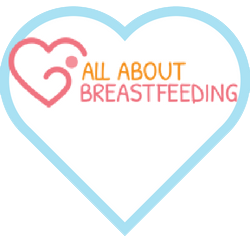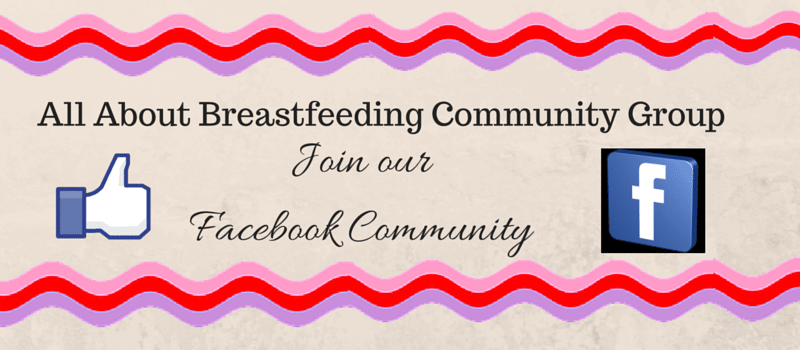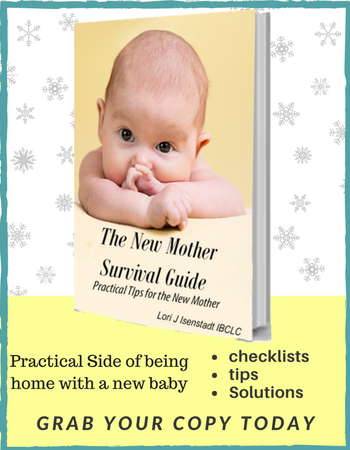Episode 382
Her Background:
After years of struggling with aversion, Zainab created the resource site www.breastfeedingaversion.com and has been a breastfeeding peer supporter for the NHS for a number of years. She actively supports mothers and families who struggle with aversion and campaigns to raise awareness of the phenomenon. In her professional capacity, she is a Biomedical Ethicist, Vice Chair of a Research Ethics Committee Panel for the Health Research Authority, and a Member of King’s College London Ethics and Policy Governance Board.
Definitions:
Breastfeeding Aversion: This is when breastfeeding is triggering negative emotions on a wide spectrum being anywhere from milder thoughts like wanting to pinch yourself, agitation, pushing your baby off of you and being irritated all the way through having emotions such as anger and range and a panic kind of feeling and wanting to just run away.
D-Mer – Dysphoric Milk Ejection Reflex: A condition in which you feel particularly negative emotions that happen with your ( MER)milk release. You experience this for about 3- 10 seconds and then it goes away. Typically you will feel waves of negative emotions described as dysphoria, despair, a bottomless pit in your tummy, emptiness.
The 2 big differences between BA and DMER is that the emotions are very short-lived and different with DMER. With BA, the emotions last as long through the let down and continue the whole time your baby is latched on & the other difference is very distinct emotions felt with each condition.
Her story:Breastfeeding was just a given. It was just something all the females in her family and culture did. With her Muslim background, she grew up in a culture where the assumption is that you were going to breastfeed (how else would you feed your baby?) She actually had more concerns about the birth, so this was her focus. She really did not give much thought to breastfeeding. None, except for the fact that she knew she was going to do it.
Not having any concerns about breastfeeding, she didn’t read up on breastfeeding or attend any classes or read any books. Now when it was time for her to breastfeed and her breasts filled with milk, she looked down one day and had these large melons for breasts and it was difficult in the beginning. She thought to herself: “this is surreal.” She expected things to get easier and it took a while until it got a bit easier. She had a lot of milk, but her baby had tongue tie ( which was undiagnosed) and she definitely struggled in the early days. Her son never took a bottle or a pacifier. About 4 months into it, she got her monthly cycle back and he was not sleeping as well. This is about the time that her breastfeeding aversion kicked in. She started to get very angry and upset. Feel waves of anger when he is latching and she had no idea what was happening. She ignored it and didn’t tell anyone. She realizes now that there were several reasons why she did not tell anyone. In addition to feeling ashamed and afraid that people would think this was absurd or that she was a monster, she also recognizes the fact that she did not understand what she was feeling and had no words to describe it.
This is what actually led to her researching the subject. She searched the internet trying to find answers herself. Not being able to do so, she set about finding out for herself. As she carried on with her research and has written and presented on the subject, it is now easier for her to say how she felt about breastfeeding. She is not afraid to tell others about her experience and the words come easier to her when explaining it to others. Hindsight is wonderful 20-20.
About 13 months in, she realized that she just could not keep it in anymore and told her husband how she was feeling. As she got bolder, she did better with “confessing” her truth. She is even comfortable now saying that while breastfeeding was so important to her and she continued doing it, but admits to hating it.
What she has learned for herself and from other women:
She has wondered why women who had BA, still wanted to continue breastfeeding. One would think it would be a trigger to wean Those feelings so strong that your response is to want to push your baby away that you hated breastfeeding and wanted to stop. Why didn’t this cause moms to want to wean. Zainab use to feel it was her Muslim upbringing, however, through her research she has learned that 80% of the women who got BA said they were still breastfeeding. Knowing that she felt the same way, she wondered why this was. She continued breastfeeding long after she got BA. Why didn’t she and others like her wean?
Women still have the bond with their babies, even though they had breastfeeding aversion. She is studying oxytocin and the relationship with breastfeeding aversion and breastfeeding.
They are inter-linked in the sense that if your have D-MER you are more likely to get BA because you will have a negative association with breastfeeding because of the difficulties with the negative emotions. This means that you will struggle more of the struggles with breastfeeding puts you at risk factor for getting BA. So, you can see many mothers who may experience both and how they can tell is what kind of feelings they get, and when, in the breastfeeding journey. They are pretty distinct and once you know what they are, you will be able to tell the difference.
Very interesting thoughts:
Some women will have DMER, but they experience aversion when they get their menses or when they are ovulating. which is when some women get BA even if they didn’t have DMER.
Her research is showing 4 Risk categories for BA – 4 Main categories
1st – breastfeeding through pregnancy – extremely sore nipples, changes in body and with milk drying up.
2nd – tandem feeding or feeding multiples – which includes: newborn and toddler, or twins and triplets
3rd – trauma or abuse as a child or early adult – absent parent, parent who is substance abuser, physical abuse, neglect, survivor of sexual abuse
4th – mothers struggling through persistence pain – i.e. tongue-tie, Raynaud’s of the nippleWhat can help to prevent or reduce symptoms of BA:
Tell someone about it. Secrecy makes nothing better. Find someone that you trust and tell them how you feel.
Track your menstrual cycle. You can see when you are having your period and when you are ovulating and many women can link their aversion to this. It can last anywhere between 1-3 days when ovulating and 5 days premenstrual tension and 5 days postmenstrual tension. Some women have their whole month plagued by their menses. Knowing that it is linked to this can help you manage your emotions, understand yourself and what is happening. Spike into testosterone when ovulating and it is typically a hormone that is known for aggression and it is high in males. This can be alarming for you, but understanding your own triggers can be helpful.
Taking supplements – this is an area that we are still learning about.
Self care – Making sure that you are hydrated particularly at night – seems to help.
Distracting yourself by visual, audio or physical sensations.
LINKS:
Twitter: @bf_aversion
Facebook: Breastfeeding (Nursing) Aversion and Agitation Awareness: https://www.facebook.com/breastfeedingaversion/
Instagram: Breastfeeding Aversion: https://www.instagram.com/breastfeedingaversion/
Your Online Breastfeeding Class
Learn how to breastfeed – Be comfortable. Be confident.
The learning continues well beyond the average breastfeeding basics class that is 60-90 minutes. In this class, we have over 15 hours of audio lessons, combined with many hours of videos to help support what you are learning. We cover breastfeeding and medication safety, what to do if your baby does not latch on, common breastfeeding challenges, tongue tie, premature babies, building a good supply, returning to work and pumping. Take a look at the list below and follow the link to the class page so you can see more specifics of what is covered. I want to ensure that we got you covered and that you have great support well beyond the newborn days.
- Using your pregnancy time to prepare for breastfeeding
- Tips on how to prepare your home for a newborn
- Specific details about the first 24 hours after birth.
- Exactly what to expect the first two weeks after birth
- What can you do if your baby is not latching on
- Common and not so common breastfeeding challenges
- What you can expect over the next few months
- Returning to work as a breastfeeding/pumping mom
- Pumping and storing your milk
- When to begin pumping and building your freezer stash
- How to make a smooth transition to postpartum life
- Lessons dedicated to partners and breastfeeding knowledge.
- Breastfeeding and the 1 year old
- Breastfeeding the toddler and beyond
- Tandem nursing
- Breastfeeding through a pregnancy
- Medication and mother’s milk
- Weaning
Once you register for the class, you have immediate access to:
- Audio Lessons
- Videos
- Educational handouts
- Helpful checklists
- Our “members only” group
- Weekly group LIVE Q&A sessions
Gain confidence in breastfeeding.
Expert advice from Lori J. Isenstadt, IBCLC who has over 25 years of experience in maternal health and lactation. I will help you navigate the ins and outs of breastfeeding.
Listen anywhere and anytime. Imagine not having to sit in a classroom or stare at a screen. You can learn all about breastfeeding while going for a walk, driving to work or running errands, traveling on a plane, train or bus. Because you can download the audios, learning is easy and convenient. Get ready to learn anytime whenever it’s convenient for you and your partner. You can be cooking dinner together and listening to the class. Perhaps relaxing together in the evening in your comfy clothes. You can learn together. Easy access to all class materials. Your class never expires. You’ll be able to listen and download the materials at your convenience.
You are not alone!
Once you are a student in the breastfeeding class, you have regular access to ongoing support for the whole time you are breastfeeding. You can have your questions answered by Lori J. Isenstadt, IBCLC, in our private group as well as our weekly live Q & A sessions. Just check out the Bonuses below to see how I provide you with ongoing support..
Exclusive Bonus #1
Immediate access to a private group for class students only. I will be answering your questions 5 days a week.
Exclusive Bonus #2
Invitation to join our weekly Q & A session with Lori and other students.
Exclusive Bonus #3
Need additional help? *25% discount off a private consult – for students only.
*If you are in the Phoenix metro area. use this link to schedule your Office or Home lactation consult.
*If you are out of the area, use this link to schedule a Skype call
Do you have a question about the class before you purchase? Send it to – aabreastfeeding@hotmail.com
 Register for the Breastfeeding class
Register for the Breastfeeding class
http://www.aabreastfeeding.com/breastfeedingclass
Additional ways to connect with me:
Like us on Facebook HERE:
http://bit.ly/2dNPlsC
Follow us on Twitter HERE:
@breastfeedingaz
http://bit.ly/2BfEIJ2
Follow us on Pinterest HERE:
https://www.pinterest.com/lorijisenstadt
Subscribe on iTunes the All About Breastfeeding show HERE:
https://apple.co/2FJGwsV
Lori J. Isenstadt, IBCLC
 Lori Jill Isenstadt, IBCLC is a huge breastfeeding supporter. She has spent much of her adult life working in the maternal health field. Once she became turned on to birth and became a childbirth educator, there was no stopping her love of working with families during their childbearing years. Lori became a Birth doula and a Postpartum doula and soon became a lactation consultant. She has been helping moms and babies with breastfeeding for over 25 years. Lori founded her private practice, All About Breastfeeding where she meets with moms one on one to help solve their breastfeeding challenges. She is an international speaker, book author and the host of the popular itunes podcast, All About Breastfeeding, the place where the girls hang out. You can reach Lori by email at: [email protected] or contact her via her website: allaboutbreastfeeding.biz/contact
Lori Jill Isenstadt, IBCLC is a huge breastfeeding supporter. She has spent much of her adult life working in the maternal health field. Once she became turned on to birth and became a childbirth educator, there was no stopping her love of working with families during their childbearing years. Lori became a Birth doula and a Postpartum doula and soon became a lactation consultant. She has been helping moms and babies with breastfeeding for over 25 years. Lori founded her private practice, All About Breastfeeding where she meets with moms one on one to help solve their breastfeeding challenges. She is an international speaker, book author and the host of the popular itunes podcast, All About Breastfeeding, the place where the girls hang out. You can reach Lori by email at: [email protected] or contact her via her website: allaboutbreastfeeding.biz/contact

Submit a comment
your email address will not be published








